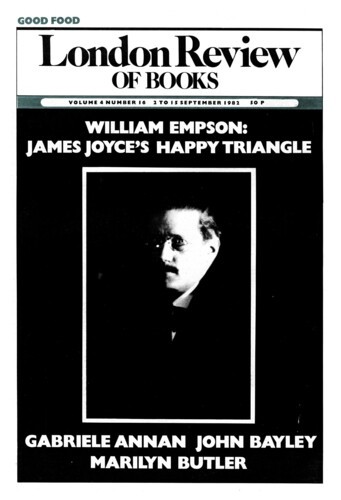(for John Betjeman)
Miss Frith was put on processing; that glue
And all those labels. Not seven months there,
And Mr Mortimer, who always said
‘Miss Frith’ and never ‘Gill’ or ‘Gillian’,
Right through the informal Nineteen-Sixties,
Rested one day his two hands on her hips
As she sat cross-legged on the high stool
At the labelling desk. She did not squirm,
She did not put the labels down; to be
A statue of innocence was her way
Of making Mr Mortimer redeem
His fingers, which (to be fair) he had not
Spread out all that widely.
After ten months,
Miss Frith was briefly told by Miss Duveen
How Mr Langley, in the previous year,
Had twice put his arm round her shoulders in
The Lower Stack Room. No, it had not been
A question of her having felt some need
Of comforting, or of her wanting help
With the box-files; he had just come and put
His arm around her, and had no excuse –
An honesty for which he would obtain
A tick in the Eternal Register.
Five months went by. Then, Mr Mortimer
Suddenly kissed Miss Frith, full on the lips,
On the little-used back staircase between
The Processing Room and the Staff Canteen.
Five months! So things were speeding up. But times
Were frantic, what with the renovations,
And he never did anything else. All
Over the building lay the dusty planks,
The stepladders and dust sheets, brought by bald
And jocular young white-coated builders,
Who painted and sang to small transistors.
They were apt to appear round any corner;
One could not really use that staircase now.
Miss Frith occasionally wondered what
Inscrutable inertia it was that kept
The silent Mr Langley three short yards
Away from her, at his metal table,
Through so many busy and humid days
Spent loathing the central heating. Of course,
She would not have welcomed an intrusion;
But she would have looked for something. ‘In time,
Even the rocks,’ she read, ‘will change their shape.’
She doubted it. One day in May, Miss Frith
Lifted her eyes from all the labels on
The labelling desk, and put down her brush,
And observed that the dust in the still air
Was thinner than it had been. It was quiet,
The builders gone and the renovations
Finished till the next time. Now, suddenly,
With eyes less prone to notice than to gaze
(With dull eyes pleading for the world to change)
She saw that the traffic down there in the street,
Passing and crossing, on through day and dark
And never ceasing, was re-organised
Into an irreversible One Way.
Send Letters To:
The Editor
London Review of Books,
28 Little Russell Street
London, WC1A 2HN
letters@lrb.co.uk
Please include name, address, and a telephone number.

